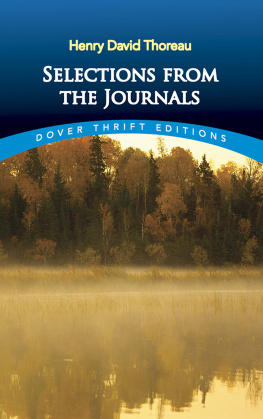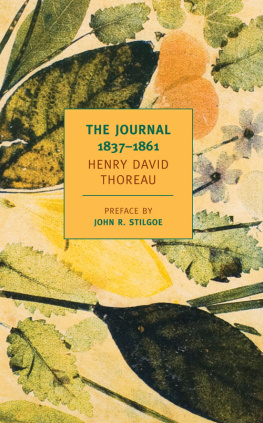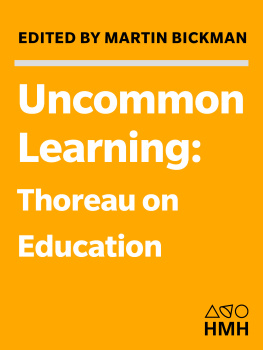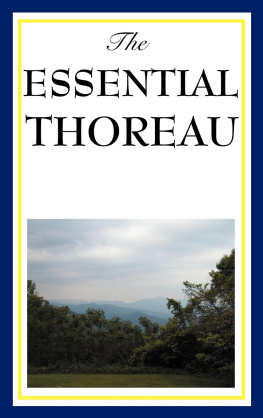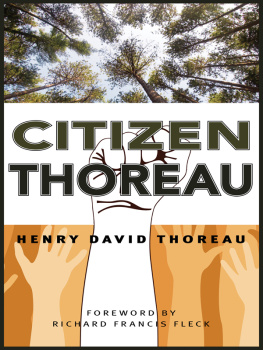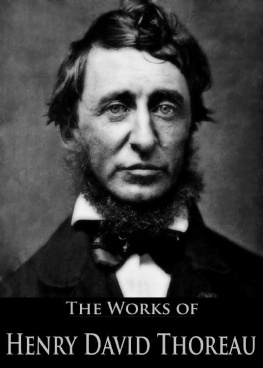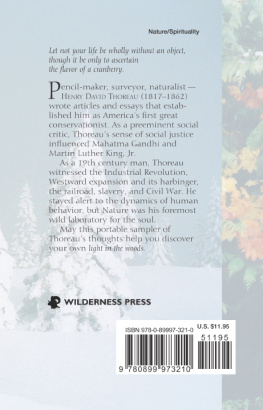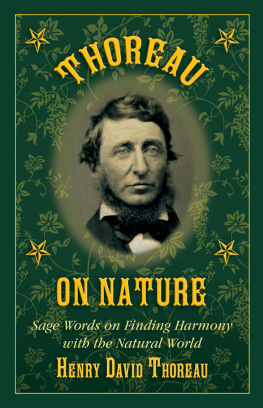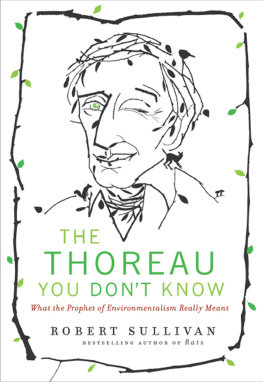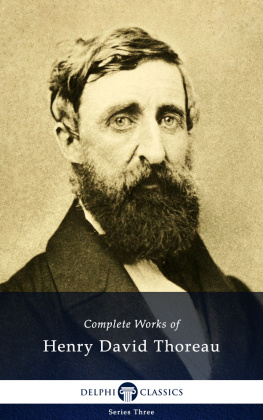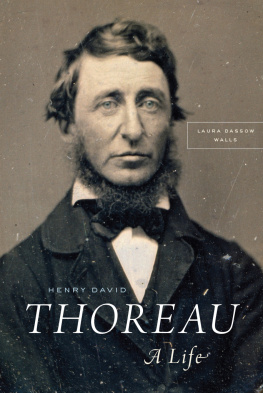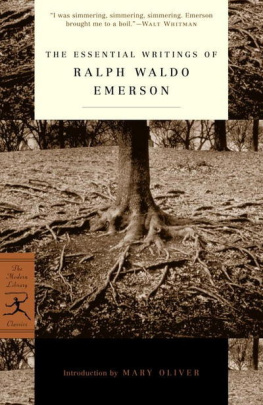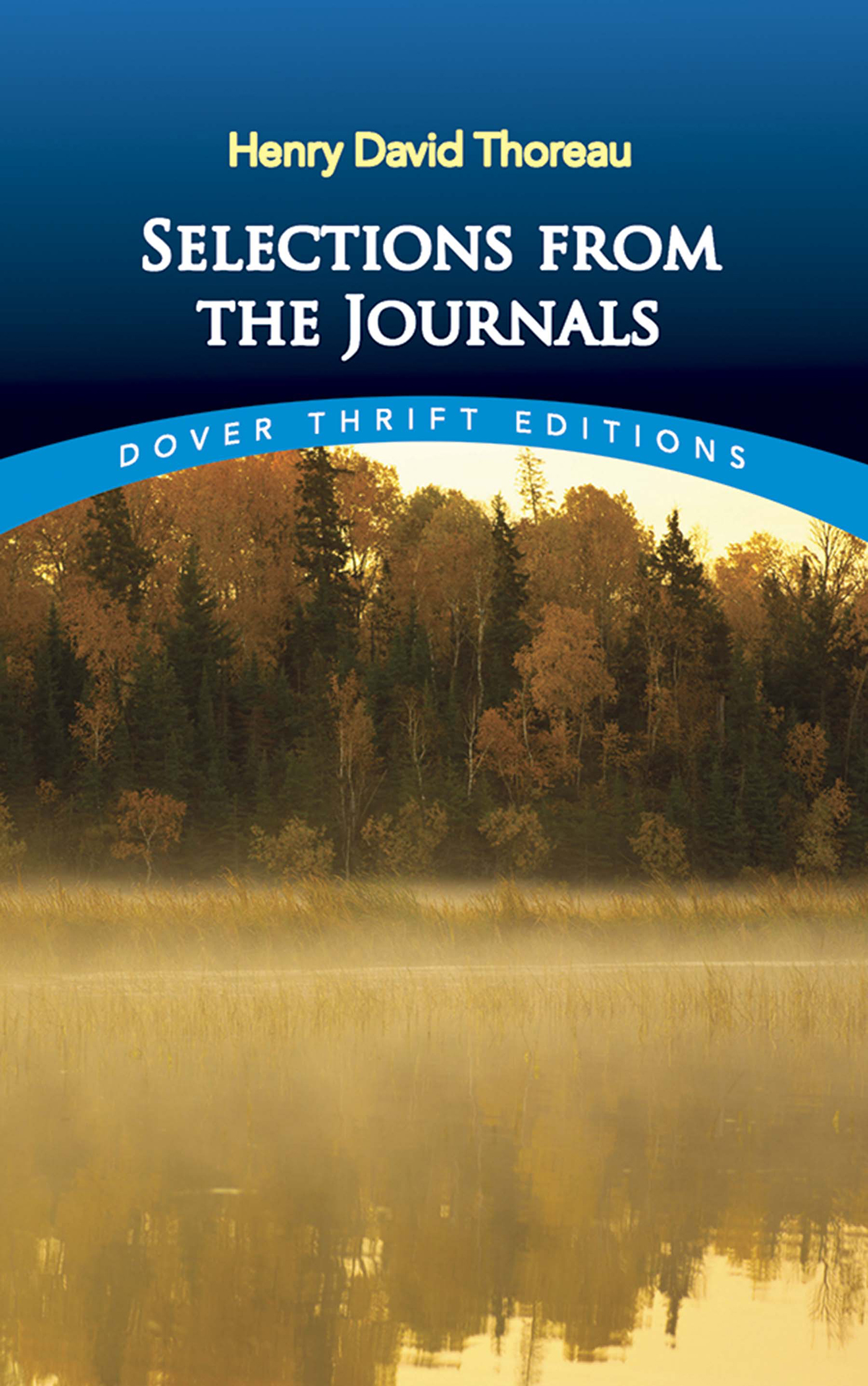(T. 20)
Oct. 22. What are you doing now? he asked. Do you keep a journal? So I make my first entry to-day.
Oct. 29. Two ducks, of the summer or wood species, which were merrily dabbling in their favorite basin, struck up a retreat on my approach, and seemed disposed to take French leave, paddling off with swan-like majesty. They are first-rate swimmers, beating me at a round pace, andwhat was to me a new trait in the duck characterdove every minute or two and swam several feet under water, in order to escape our attention. Just before immersion they seemed to give each other a significant nod, and then, as if by a common understanding, twas heels up and head down in the shaking of a ducks wing. When they reappeared, it was amusing to observe with what a self-satisfied, darn-it-how-he-nicks- em air they paddled off to repeat the experiment.
1841
Jan. 30. Fair Haven Pond is scored with the trails of foxes, and you may see where they have gambolled and gone through a hundred evolutions, which testify to a singular listlessness and leisure in nature.
Suddenly, looking down the river, I saw a fox some sixty rods off, making across to the hills on my left. As the snow lay five inches deep, he made but slow progress, but it was no impediment to me. So, yielding to the instinct of the chase, I tossed my head aloft and bounded away, snuffing the air like a fox-hound, and spurning the world and the Humane Society at each bound. It seemed the woods rang with the hunters horn, and Diana and all the satyrs joined in the chase and cheered me on. Olympian and Elean youths were waving palms on the hills. In the meanwhile I gained rapidly on the fox; but he showed a remarkable presence of mind, for, instead of keeping up the face of the hill, which was steep and unwooded in that part, he kept along the slope in the direction of the forest, though he lost ground by it. Notwithstanding his fright, he took no step which was not beautiful. The course on his part was a series of most graceful curves. It was a sort of leopard canter, I should say, as if he were nowise impeded by the snow, but were husbanding his strength all the while. When he doubled I wheeled and cut him off, bounding with fresh vigor, and Antus-like, recovering my strength each time I touched the snow. Having got near enough for a fair view, just as he was slipping into the wood, I gracefully yielded him the palm. He ran as though there were not a bone in his back, occasionally dropping his muzzle to the snow for a rod or two, and then tossing his head aloft when satisfied of his course. When he came to a declivity he put his fore feet together and slid down it like a cat. He trod so softly that you could not have heard it from any nearness, and yet with such expression that it would not have been quite inaudible at any distance. So, hoping this experience would prove a useful lesson to him, I returned to the village by the highway of the river.
Feb. 18. It is the unexplored grandeur of the storm which keeps up the spirits of the traveller. When I contemplate a hard and bare life in the woods, I find my last consolation in its untrivialness. Shipwreck is less distressing because the breakers do not trifle with us. We are resigned as long as we recognize the sober and solemn mystery of nature. The dripping mariner finds consolation and sympathy in the infinite sublimity of the storm. It is a moral force as well as he. With courage he can lay down his life on the strand, for it never turned a deaf ear to him, nor has he ever exhausted its sympathy. April 5. I only ask a clean seat. I will build my lodge on the southern slope of some hill, and take there the life the gods send me. Will it not be employment enough to accept gratefully all that is yielded me between sun and sun? Even the fox digs his own burrow. If my jacket and trousers, my boots and shoes, are fit to worship God in, they will do. Wont they, Deacon Spaulding?
1842
March 26. I must confess I have felt mean enough when asked how I was to act on society, what errand I had to mankind. Undoubtedly I did not feel mean without a reason, and yet my loitering is not without defense. I would fain communicate the wealth of my life to men, would really give them what is most precious in my gift. I would secrete pearls with the shellfish and lay up honey with the bees for them. I will sift the sunbeams for the public good. I know no riches I would keep back. I have no private good, unless it be my peculiar ability to serve the public. This is the only individual property. Each one may thus be innocently rich. I inclose and foster the pearl till it is grown. I wish to communicate those parts of my life which I would gladly live again myself.
184547
[Undated] From all points of the compass, from the earth beneath and the heavens above, have come these inspirations and been entered duly in the order of their arrival in the journal. Thereafter, when the time arrived, they were winnowed into lectures, and again, in due time, from lectures into essays. And at last they stand, like the cubes of Pythagoras, firmly on either basis; like statues on their pedestals, but the statues rarely take hold of hands. There is only such connection and series as is attainable in the galleries. And this affects their immediate practical and popular influence.
1850
[Undated] I once set fire to the woods. Having set out, one April day, to go to the sources of Concord River in a boat with a single companion, meaning to camp on the bank at night or seek a lodging in some neighboring country inn or farmhouse, we took fishing tackle with us that we might fitly procure our food from the stream, Indian-like. At the shoemakers near the river, we obtained a match, which we had forgotten. Though it was thus early in the spring, the river was low, for there had not been much rain, and we succeeded in catching a mess of fish sufficient for our dinner before we had left the town, and by the shores of Fair Haven Pond we proceeded to cook them. The earth was uncommonly dry, and our fire, kindled far from the woods in a sunny recess in the hillside on the east of the pond, suddenly caught the dry grass of the previous year which grew about the stump on which it was kindled. We sprang to extinguish it at first with our hands and feet, and then we fought it with a board obtained from the boat, but in a few minutes it was beyond our reach; being on the side of a hill, it spread rapidly upward, through the long, dry, wiry grass interspersed with bushes.
Well, where will this end? asked my companion. I saw that it might be bounded by Well Meadow Brook on one side, but would, perchance, go to the village side of the brook. It will go to town, I answered. While my companion took the boat back down the river, I set out through the woods to inform the owners and to raise the town. The fire had already spread a dozen rods on every side and went leaping and crackling wildly and irreclaimably toward the wood. That way went the flames with wild delight, and we felt that we had no control over the demonic creature to which we had given birth. We had kindled many fires in the woods before, burning a clear space in the grass, without ever kindling such a fire as this.
As I ran toward the town through the woods, I could see the smoke over the woods behind me marking the spot and the progress of the flames. The first farmer whom I met driving a team, after leaving the woods, inquired the cause of the smoke. I told him. Well, said he, it is none of my stuff, and drove along. The next I met was the owner in his field, with whom I returned at once to the woods, running all the way. I had already run two miles. When at length we got into the neighborhood of the flames, we met a carpenter who had been hewing timber, an infirm man who had been driven off by the fire, fleeing with his axe. The farmer returned to hasten more assistance. I, who was spent with running, remained. What could I do alone against a front of flame half a mile wide?

